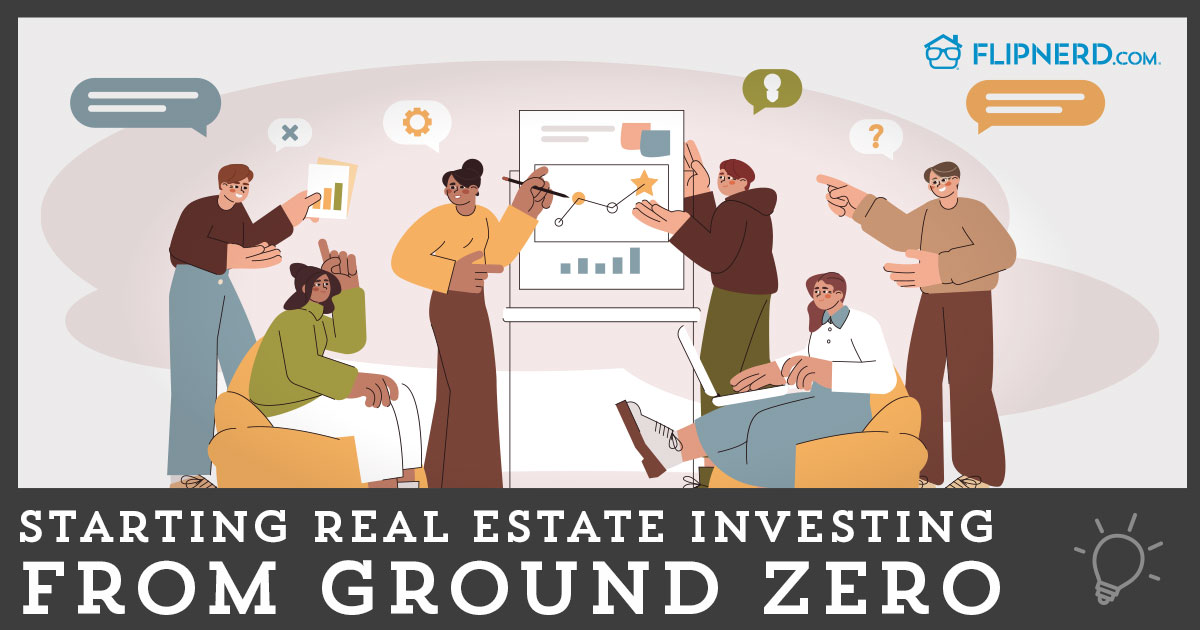When it comes to investing in real estate, many times investors will decide to partner with someone on their deals. These partnerships can consist of either family members, friends, or other investors/business professionals. Investors choose partners because they provide them with money, experience, and resources.
It is important though to clearly define with your partners what the details of your partnership will be. Are they just meant to be a source of financing and you are going to oversee and manage the entirety of the project and split the profits later? Are they also going to be involved and have input in what goes on with the fix and flip? Who is responsible then for each aspect of the project such as hiring contractors, overseeing the renovations, and handling the sale?
Before venturing into a potential partnership, consider these pros and cons of working with someone else on your next fix and flip deal.
The Pros
- Split the Costs and the Risk: When it comes to a partnership, you are not responsible, necessarily, for providing all the funding for the purchase and rehab of the property. Therefore, you are saving yourself from having to come up with all the money that you would normally have to if you were doing the deal alone. Also, with both of you in on the deal together, you are taking equal chances when it comes to decisions and potential risks that accompany the project.
- Experience and Knowledge: Especially if you are a new investor, having a partner who has been investing for a while is a great resource for more than just providing money. You can gain valuable insight, strategies, and techniques from them that you can not only use for the current deal, but also apply to future investments. Whether they are a mentor to you or just someone you can learn a few things from, partners can offer you help, wisdom, and guidance.
- Better Time Management: Fix and flip deals require you to wear many hats. You have to source properties, hire contractors, handle renovations, monitor the budget, keep an eye on the timeframe, and plan the sale. All of these things take one word: TIME! With a partner by your side, you can split the tasks in half. Perhaps you are more of the number cruncher and your partner is better with repairs. You take on the accounting elements and let your partner deal with the contracting team, obtaining permits, and buying supplies. Play to each of your strengths so you both don’t get overwhelmed by the amount of work that is required to successfully complete your fix and flip deal.
The Cons
- Divide the Profits: On the flip side, when it comes to partnering on a deal, you are clearly going to have to pay your partner some share of the profits once the property sells. Depending upon the type of agreement you came to prior to beginning the deal, you could be splitting upwards of 50% or more of your profits. You also have to take into consideration that you may be doing all the legwork while they just provide funding, yet they are receiving just as much of the rewards. If you are okay with that scenario, then this may not be a negative for you after all.
- Family and Friends: If your partner happens to be your family or a friend, then this business deal has taken a turn for the personal. It can be a totally different situation when you are doing business with someone you have a personal relationship with. These aren’t just money lenders, banks, or real estate associates providing you funding. These can be your parents, siblings, relatives, or close friends. You’ll have to think to yourself, what will you do if something goes wrong with the deal and you are unable to repay them the money? Will you be able to handle that kind of pressure?
- You’ll Have to Get Along: This might be another obvious point, but it is still valid. When you partner with someone, you have to get along with one another since you will be making important investment decisions together. If you each follow your own strategies or proven techniques, then you are not going to get anywhere on your project. Cooperation, collaboration, and communication will be key in order to make this partnership work, so if you can’t see eye to eye with one another, then this partnership will be a sinking ship.
So Do You Find a Partner or Brave it Alone?
This will be completely up to each individual investor and their situation. If you have the money, time, and knowledge, then feel free to be a solo act. However, if you are new to the business, in need of additional funding, or just looking for someone to take some of the weight off your shoulders, then perhaps finding a partner won’t be such a bad idea. On the other hand, if you are not good at compromising with others, do not want to take the risk with friends or family, or are not willing to share your profits, then a partnership may not be in your future. Make the decision wisely and weigh both sides of the argument before journeying down that road to a partnership investment.









